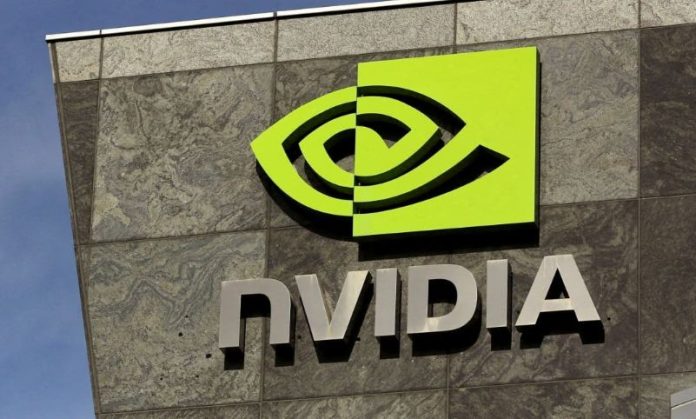The United States released new rules on Tuesday to further restrict China’s access to advanced chips and chipmaking tools, the latest in a series of measures aimed at curbing China’s technological and military advances.
The new rules will reinforce the export controls on semiconductor technology to China the administration unveiled last October. These updates “are necessary to maintain the effectiveness of these controls, close loopholes, and ensure they remain durable”, according to a statement by the Commerce Department on Tuesday.
Biden’s China tech policy goal: a 10 year handicap
Biden’s China tech policy goal: a 10 year handicap
“Today’s updated rules will increase effectiveness of our controls and further shut off pathways to evade our restrictions. These controls maintain our clear focus on military applications and confront the threats to our national security posed by the PRC government’s military-civil fusion strategy,” said Commerce Secretary Gina Raimondo.
The latest move comes just weeks before the Apec leaders summit in San Francisco, where officials on both sides have been trying to lay the groundwork for a summit between US President Joe Biden and Chinese President Xi Jinping.
The announcement also followed the opening of the third Belt and Road Forum for International Cooperation, which marks the 10-year anniversary of Xi’s flagship outbound investment plan.
Commerce Secretary Gina Raimondo said that the US updated and broadened its export controls to stop China from acquiring advanced computer chips and the equipment to manufacture them. Photo: AP
Commerce Secretary Gina Raimondo said that the US updated and broadened its export controls to stop China from acquiring advanced computer chips and the equipment to manufacture them. Photo: AP
The updated package of controls change the rules from last October to impose controls on additional types of semiconductor manufacturing equipment, and expand license requirements for chipmaking equipment to apply to the PRC and Macau, as well as 21 other countries for which the US maintains an arms embargo.
The Commerce Department’s Bureau of Industry and Security (BIS) has also introduced “red flags” and heightened due diligence requirements to help assess whether foreign entities are attempting to evade controls. Companies will now have to operate under a “default assumption of license denial”.
According to the BIS, the rules aim to address intelligence reports that highlight “countries of concern” exploiting non-embargoed nations to gain access to restricted technology.
EVERY SATURDAY
A weekly curated round-up of social, political and economic stories from China and how they impact the world.
By submitting, you consent to receiving marketing emails from SCMP. If you don’t want these, tick here
GET OUR NEWSLETTER
By registering, you agree to ourT&CandPrivacy Policy
The new rules appear to have a significant impact on the US company Nvidia. The AI chip maker was restricted from selling its top-end A100 and H100 graphics processing units to China following the October curb.
China’s chip imports fall 15% in first nine months of 2023
14 Oct 2023
The Biden administration is expected to further tighten US semiconductor export restrictions on China. Photo: Shutterstock
Responding to that, the chip giant moved to make a version of its AI chips for the Chinese market called the A800 that fell below performance thresholds outlined by the Commerce Department.
The rules released on Tuesday eliminate the communication speed limits and focus on computing performance, which will have the effect of halting sales of Nvidia’s A800 and H800 chips for the China market, according to a senior administration official.
In a statement, Nvidia said it was not anticipating significant near-term financial impact from the new restrictions.
“We comply with all applicable regulations while working to provide products that support thousands of applications across many different industries,” Nvidia said.
The Semiconductor Industry Association (SIA), the sector’s trade group, however, said that “overly broad, unilateral controls risk harming the US semiconductor ecosystem without advancing national security as they encourage overseas customers to look elsewhere”.
New US rules on AI chip exports ‘aim to stop workarounds on China sales’
16 Oct 2023
A smartphone with a Nvidia logo. Nvidia is the world’s most valuable chipmaker. Photo: Reuters
“Accordingly, we urge the administration to strengthen coordination with allies to ensure a level playing field for all companies.”
Huawei Technologies’ latest breakthrough for its use of advanced 7-nanometer processor for its new phone released in August has sparked concerns in Washington over the effectiveness of US chip technology restrictions.
The US government has initiated an investigation into Huawei’s latest phone. Raimondo said during a House hearing last month that “we don’t have any evidence that they can manufacture seven-nanometer at scale”.
US eyes more AI chip curbs on Chinese companies to close loophole
13 Oct 2023
US President Joe Biden speaks during an event at the White House on Wednesday. Photo: AP Photo
According to the Commerce Department statement, the new controls were strategically crafted to address China’s efforts to obtain semiconductor manufacturing equipment essential to producing advanced integrated circuits needed for the next generation of advanced weapon systems.
It was also intended to impede efforts to get high-end advanced computing semiconductors necessary to enable the development and production of technologies such as artificial intelligence (AI) used in military applications.
Advanced AI capabilities – facilitated by supercomputing, built on advanced semiconductors – raised US national security concerns because they can be used to improve the speed and accuracy of military decision making, planning, and logistics. They can also be used for cognitive electronic warfare, radar, signals intelligence, and jamming.
Also on Tuesday, BIS added two China-based companies, Biren Technology and Moore Threads, to the list of entities subject to export bans.
The bureau said both companies were involved in the development of advanced computer integrated circuits that had the potential to enhance AI capabilities that could facilitate the development of weapons of mass destruction, advanced weapons systems and sophisticated surveillance applications.

















